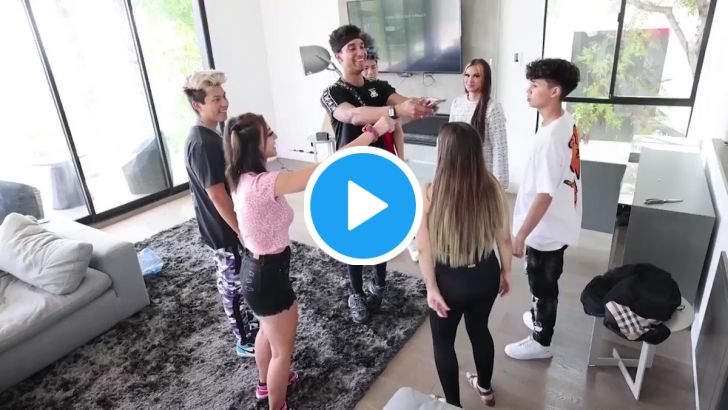19: One of the Most Valuable Things I've Done in Recent Years, Snowflake Data Cloud Podcast, China Adds A.I. Algorithms to Export Controls
"the upside can be a big chunk of your life back, or a lot of extra knowledge"
A person with charisma can make a friend quickly. A person with character can keep a friend for a lifetime. -Stoic Emperor
Time is clearly our most precious resource. It’s non-renewable and finite, and depending how we allocate it, our results in life can vary quite a lot (whoever’s doing great things in the world right now also only has 24 hours a day). Things that save or reclaim time have great value.
So one of the most valuable things I’ve done in recent years was getting used to listening to podcasts, audiobooks, and Youtube videos of talks/presentations/interviews at more than 1x.
Now many of you are probably already doing that and going “duh”, but I want to talk to the other group here, because I remember what it sounds like before you get used to it.
It sounds like that “speed reading” stuff that has never worked for me, or that has made my comprehension and retention drop so much every time I tried it that the net effect was negative…
Usually when people hear about it, they put their podcast player to 2x and everybody sounds ridiculous, like chipmunks, and they think, “people are just pretending that it sounds fine to them, this is crazy…” and then they immediately give up.
It reminds me of the first time a friend of mine tried Scotch Whisky (neat). All he could taste was the alcohol, so he later admitted that he secretly thought we were BS’ing him when we talked about all the different flavors we could taste in it. But he stuck with it, got used to 40% ABV, and after a while he stopped tasting the alcohol and started tasting the rainbow. It just takes a bit of time for your brain to rewire itself.
It’s the exact same with audio speeds. The rate at which we think thoughts, or even read, is much faster than the rate at which most people speak, so we’re fine with ingesting data at that rate. It’s not about pushing things above the redline, it’s about bringing audio throughput to the rate of other input methods.
So here’s my recommendation: Start with the smallest increment, and stick to it for many days until it sounds normal to you. In fact, if you go back to regular speed, it should sound like people are drunk. Then you go up one more notch and stick to it for a while. At some point you’ll plateau and reach the speed at which your brain is comfortable thinking (it can be different for different people — it’s not a competition, if all you can get comfortable is 1.25x, that’s fine, you’re still saving tons of time).
I’ve been doing this for years, listening to things at speeds of between 1.5x and 2.5x depending on what it is (very different to listen to a casual conversation with low information density than a technical talk on a topic you’re not familiar with, or to Marc Andreessen who naturally speaks at 1.75x, or to Jocko Willink who speaks at 0.75x).
My podcast player of choice is Overcast. It has a feature that dynamically shortens the silences between words, so it can basically give you about 0.25x in boost without really speeding up the audio. Just that feature alone has saved me over 500 hours since I’ve been using Overcast (it keeps track). Add to that the linear speed increase, and I’ve no doubt saved 1,000s of hours — or said another way, I’ve listened to 1,000s of extra hours of interviews and conversations than I would otherwise have. That’s real value!
YouTube also has a speed option if you click the “gear” icon. Many interviews and presentations can be listened to at 1.5x or 2x without a problem, and over the years, that’s no doubt hundreds if not thousands of extra hours too. Same for most audiobook apps.
Keep doing that for decades, and it adds up.
I know some of you have been skeptical of this for a long time. It sounds like one of these “guru life hacks” that’s not for you, like micro-dosing or whatever. But give it a try over a few weeks with my method.
Worst case, not much will have happened, but the upside can be a big chunk of your life back, or a lot of extra knowledge and entertainment (don’t look down on entertainment — it’s one of the things that makes life worth living).
Investing & Business
‘China's new AI export curbs threaten TikTok's US sale’
Someday I’ll stop writing about TikTok... but not today.
Beijing has added several artificial intelligence technologies to its export control list, casting a shadow over the pending U.S. sale of the hugely popular streaming app TikTok by China's ByteDance.
On Friday night, the Ministry of Commerce released an updated export control list including "personalized content recommendations based on data analysis" and several other technologies under the category of dual use, implying they could potentially have both civilian and military use and that their sale overseas will be restricted.
It’s not clear what China’s goal is here, but if this ends up being applied to TikTok, it leaves the Bytedance app between a rock and a hard place. If the White House bans it for natsec reasons and China prevents the “export”/sale of the part of the company where a lot of the value resides, is TikTok just left sitting in between two chairs? Doesn’t that destroy most of the value there and hurt Bytedance the most? Is Beijing thinking “If I can’t have you, no one will”?
Via Jerry Capital.
‘TikTok Houses’
Speaking of TikTok, this Reuters piece (check out the video above) about a Los Angeles mansion where young TikTok “influencers” live and create content for the platform is kind of amazing. It reminds me a lot of the e-sports team houses in South-Korea (and now around the world) where a bunch of people all live together and practice Starcraft or League of Legends or Counter-Strike all day.
I know that Youtube creators also have a similar ecosystem where people end up slaves to the algorithm and get so little per impression and competition is so fierce that they’re on the treadmill of constant production and have to constantly increase production values to stand out… Instagram producers are not doubt facing similar dynamics.
TikTok was greenfield for a lot of people (as Vine and Musical.ly were before), and at first normal kids in their bedrooms could become stars through sheer talent and/or luck. But as time goes on, these virtual places become more competitive, and the green field turns into a village and then a city, with a lot more competition, established power law winners, etc. It becomes a lot more difficult for an ordinary creator to break through, though TikTok with its algorithm-based recommendations (as opposed to # of followers) is probably the most meritocratic of the platforms.
Via Terminal Value
❄️ Rise of the Data Cloud Podcast ❄️
Those of you interested in learning about Snowflake (I had a look at their S-1 IPO filing) may enjoy this interview with current CEO Frank Slootman.
The company actually has its own podcast, which is mostly interviews with Snowflake customers that has them talking about things like “the data economy” and “ETL”. I’ve listened to 4-5 episodes so you don’t have to, and the verdict is that it’s a little boring, but gives a flavor for what the use of data is evolving towards in companies. But many episodes feel “corporate advertorial”, so don’t expect Invest Like the Best.
Buffett Turns 90
It’s good to have friends that care about you.
Amazon Orders 1,800 Electric Delivery Vans from Mercedes-Benz
A majority of the electric vehicles from Daimler AG’s (DAIGn.DE) car and vans division will go into service this year, the company said, adding that it had ordered 1,200 of Mercedes-Benz’s larger eSprinter models and 600 of the midsize eVitos.
The order is the largest for Mercedes-Benz’s electric vehicles to date and includes 800 vans for Germany and 500 for the United Kingdom. (Source)
That’s nice to see. The electrification of transportation is a trend I’ve been following for 20 years, and it’s been happening way slower than it should. Mostly because there’s so much inertia in the system because all the legacy automakers have such large investments into the old tech that they are dragging their feet as much as possible.
I’ve mostly followed the space out of interest for the tech, not to invest, though I probably should’ve invested in Tesla at IPO, since I had been following them since they only had prototypes of the first Roadster in 2006 or 2007 and it was clear they were on a different level than the competition. I remember Jason Calacanis live-streaming his first ride in his Roadster on his Nokia phone (iirc) in super low resolution, probably on Justin.tv or some other platform of the era, and I met Elon Musk and had a brief chat with him (mostly to joke about Falcon rockets) in late 2009 or early 2010…
Anyway, good to see deep-pocketed companies like Amazon move the needle for EV manufacturers with large orders and investments (last year they ordered 100,000 EV trucks from Rivian, and invested in the company).
Science & Technology
Most Popular Internet Browsers 1994 - 2019
European Countries by Forest Cover
Finland and Sweden, alright! Source.
Microsoft Flight Simulator Mania Continues
I’m trying to keep the streak of posting about a game I’ve never played going a little longer. It’s not hard when there’s all this amazing stuff:
This truly is stuff that would’ve blown the mind of 12-year-old me. Any of the screenshots above or below, I couldn’t have believed this was a computer game that was interactive and rendered in real-time.
The Arts
‘The Innocence Files’ (2020, Netflix)
I’ve seen all but the last episode of ‘The Innocence Files”, a documentary mini-series based on various cases from The Innocence Project, and I highly recommend it.
They break things down by themes too, with some focus on bad forensics science (you gotta see the bite mark “expert” to believe it... he would definitely be played by John Goodman in a Coens brothers movie), the limits of eye-witness testimony (both when it comes to ways in which is can be manipulated or coerced, and on the limitations of human memory even with good faith witnesses and victims), corruption within the justice system (keep exculpatory evidence hidden, not pursuing other leads once they’ve decided it had to be person X, etc).
I wish this was shown in schools. We should learn what the justice system is supposed to be, but should also learn how and why it sometimes fails. The cliché about sunlight being the best disinfectant (not literally true, by the way) applies, and you can’t expect reform without first making the problems known and dragging the bad actors out of the shadows where they hide.
This Shot from 1940’s Pinocchio Was Animated by Hand…
Amazing. How could they do this? Here’s the innovation of multi-plane cameras, explained by Walt Disney himself:













